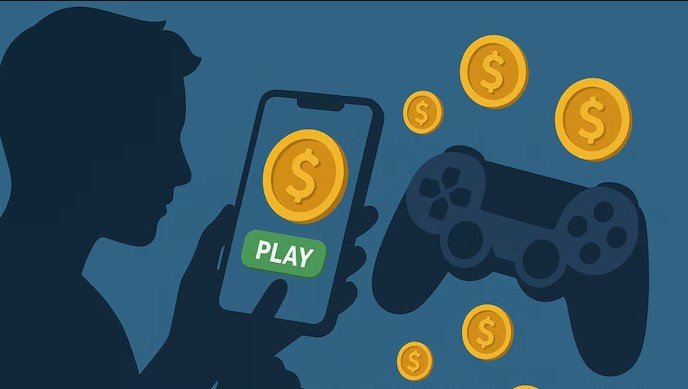Online gaming has evolved from a solitary pastime into a robust arena for social interaction, teamwork, and collaboration. Far beyond simply passing time, modern multiplayer games offer environments where players learn to communicate, strategize, and cooperate—skills that often translate into real-world benefits.
1. Cooperative Structures and Role-Based Teamwork
Many online games—especially genres like MMORPGs, MOBAs, battle royales, and co-op shooters—fundamentally rely on teamwork. In titles like World of Warcraft, Final Fantasy XIV, League of Legends, Dota 2, Valorant, or Overwatch, poker Online Casino players must adopt roles such as tank, healer, or damage-dealer. Success hinges on coordinating these roles effectively to achieve shared objectives like defeating bosses or capturing targets.
In World of Warcraft, guilds embody this collaborative spirit: over 80% of players belong to a guild, which acts as a micro-community where members coordinate tasks, share advice, and support one another.
2. Communication, Coordination, and Strategy
Effective communication is vital in online team play. Players use voice or text chat, or even in-game signals—called “pings”—to relay threats, propose strategies, or issue urgent alerts. These communication skills foster trust and cohesion, both crucial for executing complex maneuvers and adapting to dynamic gameplay scenarios.
Beyond mere gameplay, this helps develop clarity and conciseness when relaying information—valuable abilities in fast-paced real-world environments.
3. Transferring Team Skills Beyond the Game
The teamwork cultivated in gaming environments is often transferable to academic and professional settings. For instance, a study found that students credited games like Overcooked, Overwatch, Fortnite, and PUBG with enhancing planning, task division, leadership, communication, and role clarity—skills they later applied to group project assignments.
In workplace contexts, a Brigham Young University study revealed that teams playing video games together for just 45 minutes became 20% more productive than teams engaging in traditional team-building exercises. Additionally, gamers often acquire soft skills like problem-solving, leadership, and teamwork, which they carry into their job roles.
4. Team Network Dynamics and Performance
The structure of team interactions in games influences outcomes significantly. In World of Warcraft, guilds with higher “social network density”—meaning members are well-connected—tend to persist longer and perform better.
Analysis of Dota 2 teams further illustrates that teams where every member has a balanced number of connections—neither too isolated nor overly dominant—perform best, especially among lower-skilled teams. This suggests that strong yet balanced intra-team connectivity drives both performance and cohesion.
5. Loyalty, Engagement, and Generosity through Collaboration
Repeated cooperative play fosters deeper engagement with the game. A large-scale study covering over 3,000 gamers found that cooperation knowledge, team participation, and community identification significantly enhance gamer loyalty.
Moreover, in the game Sky: Children of Light, players’ generous actions were shown to be contagious—witnessing or receiving generosity led to more generous behavior and higher engagement. This demonstrates how collaborative and positive team environments reinforce player commitment and positive social dynamics.
6. Leadership and Conflict Resolution in Gaming
Team-based gaming environments often provide early experiences in leadership. Titles like Rainbow Six Siege or Overwatch see players take on leadership roles, coordinating defense strategies, assigning roles, and guiding team action.
These settings also necessitate conflict resolution—disagreements can occur in tense matches. Successful teams learn to provide constructive feedback, remain adaptable to different player styles, and maintain morale through setbacks.
7. Social Bonds and Community Building
Online games frequently evolve into vibrant social communities. Through gaming, players form global friendships, maintain connections outside of gameplay, and even make friendships that transcend gaming itself.
For example, studies involving Glory of Kings showed that collaborative play with friends strengthens relationships and mitigates feelings of loneliness. On Reddit, players share personal experiences:
“I have been playing Fortnite with my younger brother and cousin… it’s been really nice just catching up and just hearing their voice.”
8. Summary of Benefits and Statistics
| Benefit Area | Key Insights |
| Productivity Boost | Gaming-based team exercises increased productivity by 20% compared to traditional methods. |
| Professional Skill Transfer | Soft skills like teamwork, leadership, and problem-solving enhanced through gaming. |
| Team Performance & Structure | Balanced connections within teams boost performance, especially for less experienced groups. |
| Loyalty & Engagement | Cooperative play and community involvement strengthen gamer loyalty. |
| Academic Relevance | Planning, leadership, and communication improved in students via certain multiplayer games. |
| Stronger Relationships | Team-based gaming enhances friendships and counters loneliness. |
Conclusion
Online gaming provides more than just entertainment—it’s a living system for teamwork and collaboration. Through structured roles, communication, strategic planning, leadership, and mutual support, players hone skills that extend into real-world contexts. Whether in educational settings, the workplace, or social circles, the collaborative competencies developed through Casino House gaming prove meaningful and lasting.
In essence, by playing together, sharing challenges, and supporting one another, online gamers are not just winning virtual matches—they’re cultivating the teamwork skills that shape effective, empathic, and productive communities—and careers—beyond the screen.


